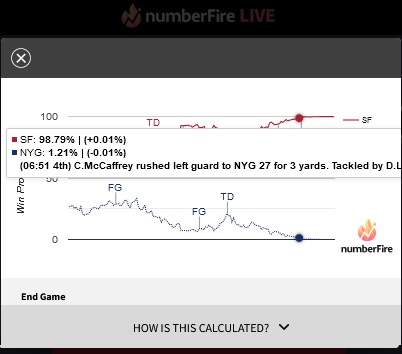Originally posted by 5_Golden_Rings:
Originally posted by RickyRoma:
Originally posted by Giedi:
Absolutely agree, *so far, so good.* The only thing I would say with operating with lesser offensive talent, is that the OLine (specially on the right side) needs to be upgraded. You can operate with lesser offensive talent, in my opinion, if you have elite Offensive Line talent. Give Brock 3+ seconds and he can definitely create some passing offensive fireworks. Having said that, in the playoffs and possibly in the Super Bowl, those offensive talent deficiencies will show up, by a better team.
An example of that would be the 49ers vs Chargers, the Chargers were exposed in the super bowl by a more complete team. In other words, I'd like ShanaLynch to keep the offensive firepower up, and not let it diminish - if they want to get to the championship game year in and year out. (easier said that than done for sure, though).
I'm assuming you meant Dolphins, because that Charger team was one of the weakest teams to ever reach a SB.
If Purdy *is* a guy who can be that top 5 type of dude, then he's a player who can elevate those around him. He's going to get the ball out, so OL doesn't have to block a guy for 4+ seconds. He's going to feel the pressure, and maneuver within the pocket and hit the open guy - like he did with that throw to Kittle against the Giants that has been posted. He's going read and recognize pre and post snap, and poor receivers are going to look average, average receivers are going to look good, and good receivers are going to look great.
He's also gonna get paid....and that means other positions will have to be sacrificed. If Shanahan, with his scheme? And assuming he has a guy with *it* in Purdy? There are many ways to skin a cat, but I'd be all for the team to just to load up on defense, and make do with lesser offensive skill guys.
We have three years to worry about that.
Agree, no need to worry about that right now. I'll just add that as long as ShanaLynch drafts as well as they are doing in the lower rounds currently. As long as they find guys like Warner, Kittle, Mitchell, Jauan, and Purdy in the draft, there is no real danger of cap hell, and sacrificing other positions to pay Purdy. If we lose Kittle, I hope they can find a Kittle 2.0, or replace him with a drafted Aiyuk 2.0. (as an example) Like right now, Aiyuk and Jennings - it will be a challenge to keep both. But is sure helps if they find a guy in the draft like Ronnie Bell if we lose either Jennings or other skill players.

